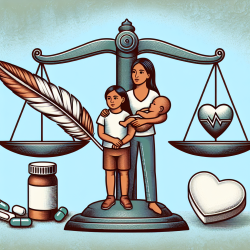Introduction
The COVID-19 pandemic has underscored the critical role of vaccines in managing global health crises. Despite the availability of effective vaccines, hesitancy remains a significant barrier to achieving widespread immunization. A recent study titled Revisiting COVID-19 Vaccine Hesitancy Around the World Using Data from 23 Countries in 2021 offers valuable insights into the factors influencing vaccine acceptance and hesitancy globally.
Key Findings
The study surveyed 23,000 individuals across 23 countries, revealing that vaccine acceptance increased from 71.5% in 2020 to 75.2% in 2021. However, hesitancy persists, particularly in countries like Russia, Nigeria, and Poland. The research identified several key factors associated with vaccine hesitancy:
- Lack of Trust: A significant portion of vaccine-hesitant individuals expressed distrust in the safety and efficacy of vaccines.
- Perception of Risk: Misperceptions about the severity of COVID-19 and vaccine side effects contribute to hesitancy.
- Mistrust in Institutions: Skepticism towards governments and health authorities is a common theme among hesitant populations.
Implications for Practitioners
For practitioners, these findings highlight the importance of targeted communication strategies. To improve vaccine uptake, practitioners should consider the following approaches:
- Build Trust: Engage with communities to build trust in vaccines and the institutions promoting them. This can involve transparent communication and addressing specific concerns about vaccine safety and efficacy.
- Leverage Trusted Voices: Utilize healthcare professionals, particularly doctors, as trusted sources of information. The study found that recommendations from doctors significantly increased vaccine acceptance among hesitant individuals.
- Address Misinformation: Combat misinformation by providing clear, evidence-based information about the benefits and risks of vaccination.
Encouraging Further Research
While the study provides a comprehensive overview of global vaccine hesitancy, it also opens avenues for further research. Practitioners and researchers are encouraged to explore:
- The impact of cultural factors on vaccine acceptance and hesitancy.
- The role of socioeconomic factors in influencing vaccine decisions.
- Strategies to effectively communicate with diverse populations.
Conclusion
Understanding the nuances of vaccine hesitancy is crucial for developing effective public health strategies. By leveraging the insights from this study, practitioners can enhance their efforts to promote vaccine acceptance and ultimately improve health outcomes globally.
To read the original research paper, please follow this link: Revisiting COVID-19 vaccine hesitancy around the world using data from 23 countries in 2021.










